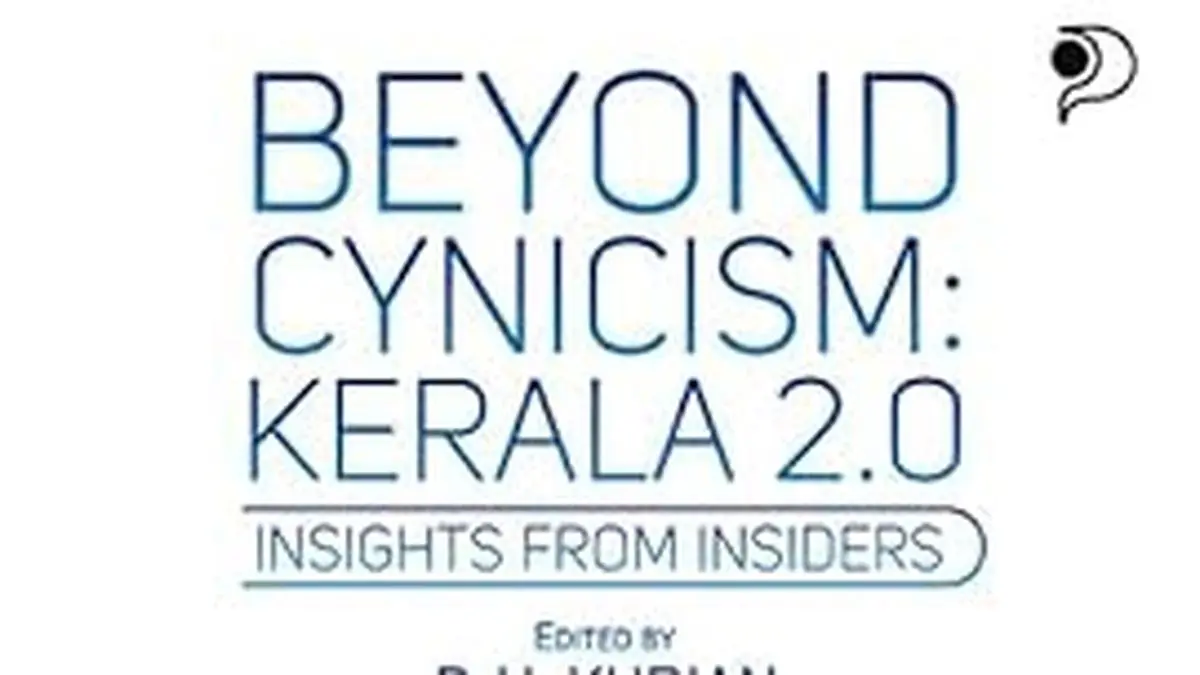Copyright thehindubusinessline

Most bureaucratic memoirs tend to be personal retrospectives — more about the self than the system. While some, like BG Deshmukh’s A Cabinet Secretary Thinks Aloud or Vinod Rai’s Not Just an Accountant, offer sharp reflections from high office, they generally rarely go beyond commentary. What Beyond Cynicism: Kerala 2.0 attempts is far more ambitious — a collective, solutions-driven intervention by serving and retired IAS and IPS officers of the Kerala cadre. Edited by PH Kurian and T Balakrishnan, both former Additional Chief Secretaries to the Kerala government, the book assembles 21 essays (including contributions from economist Dr Jose Sebastian) to address Kerala’s economic and governance deficit. This is no mere policy wishlist. It is a serious, if at times uneven, attempt to diagnose systemic dysfunction and prescribe painful but necessary reforms. The authors are not armchair critics. Kurian, for instance, famously denied a patent to Novartis in 2006, allowing cheaper access to a life-saving cancer drug. Balakrishnan is credited with reshaping Kerala’s tourism brand, often breaking from bureaucratic rigidity. They — and their co-contributors — write from the inside out. That lends the book authority. Overstretched and anaemic economy The diagnosis is blunt. Kerala is economically stagnant, fiscally overstretched, agriculturally weak and industrially “anaemic”, to summarise the book’s overarching approach. Youth are leaving in droves for foreign universities and jobs, while unskilled labour flows in from poorer Indian states like West Bengal. This mainstream narrative is skewed and there are differing voices and the usage of terms like “crisis” is overstretched. The essays seek to address solutions to these problems. Amitabh Kant, former CEO of Niti Aayog, directly calls for a “radical reform” of Kerala’s economic paradigm. He argues that both of the State’s dominant political fronts — the CPI(M)-led Left and the Congress-led UDF — are trapped in outdated welfarism. Their pro-labour, anti-market stance, he contends, has created a culture of entitlement over enterprise. Kant writes: “The Kerala government’s processes and procedures have become bottlenecks. The mindset must shift — from viewing the market as a threat to recognising it as a vital engine for economic development.” It is a challenge few in Kerala’s political elite are willing to take up. Ajit Kumar (IAS 2006) proposes the Capital Regional Development Project for Thiruvananthapuram as a pilot model, pointing out that Kerala’s unique urban-rural continuum offers a rare planning opportunity. But enabling legislation like the Special Investment Region Act remains stuck in cold storage — symptomatic of the inertia that plagues policy execution in Kerala. Digital governance, one of Kerala’s early success stories, comes under review too. Alkesh Kumar Sharma (IAS 1990) acknowledges Kerala’s pioneering Akshaya Kendras but warns of a deepening digital divide. Dr B Ashok (IAS 1998) goes further, urging user-fee models in education and health based on “ability to pay” — taboo territory in a State where “free” has long been mistaken for equitable. The migration paradox Other essays tackle niche but urgent themes. MP Joseph, drawing on his ILO experience, unpacks the twin migration paradox — educated Keralites leaving, while migrants from the Hindi heartland take up the jobs they scorn. Lida Jacob rightly argues that gender parity is yet to keep pace with social development. Dr KB Valsala Kumari advocates a “circular economy” to tackle plastic waste. S Subbiah suggests leveraging the State’s mineral wealth, and Dr Venu makes a pragmatic plea for liberalising Kerala’s archaic excise regime. Security and governance are not ignored. Jacob Punnoose (former DGP) and Rajan Medhekar (ex-NSG DG) remind us that law and order is foundational “infrastructure”. PC Cyriac, with experience in Tamil Nadu, urges bureaucratic courage and common sense over blind adherence to precedent. Dr Jose Sebastian’s essays are perhaps the most grounded in fiscal realities. He warns that the government’s size is unsustainable, calls for rationalising the pension system, and highlights Kerala’s low tax compliance. His proposal to cap pensions and reallocate excess to the unprotected is both fair and provocative — precisely the kind of equity Kerala refuses to confront. Then come the six concluding essays by Kurian and Balakrishnan — a no-holds-barred reform agenda that includes repealing Kerala’s sacred cows like the Land Reforms Act, Headload Workers Act, and Paddy and Wetland Conservation Act. They argue for monetising government land, disinvesting in failing PSUs, and dismantling bureaucratic red tape. These are not tweaks. They are tectonic shifts. And they are politically radioactive. In a State where opposition to widening highways beyond 30 metres was once a bipartisan consensus (till 2014), such proposals will test not just political will but public imagination. ‘Warts-and-all’ call for reset To its credit, the book does not pretend otherwise. It does not sugarcoat the resistance these reforms will face. Nor does it indulge in policy romanticism. This is a “warts-and-all” call for a reset — pragmatic, even ruthless at times. It understands that Kerala’s current problem is not a failure of ideas, but of execution strangled by ideology. The writing is generally accessible, mercifully free of bureaucratese. But the collection is not without flaws. Some essays tread familiar ground or overlap in content. A few proposals feel underdeveloped or repeat long-standing recommendations without clear pathways to implementation. There’s also a missed opportunity in not addressing political economy more directly — how exactly do we shift public opinion or dismantle institutional resistance? Still, the book’s cumulative impact is substantial. It functions as a manual for new civil servants, a provocation for policymakers, and a reminder to citizens that idealism without realism achieves little. It argues — convincingly — that the biggest threat to Kerala today is not poverty or inequality, but policy continuity wrapped in ideological self-righteousness. One hopes this book will do more than circulate in bureaucratic reading rooms. If it manages to spark public debate, force some rethinking in political circles, or inspire even partial adoption of its ideas, it will have succeeded. Beyond Cynicism: Kerala 2.0 lives up to its name. It dares to hope — not blindly, but with eyes wide open to the price of change. (The reviewer is a commentator on banking and finance) Book Details Book Name: Beyond Cynicism: Kerala 2.0: Insights from Insiders Published: Paridhi Publications Price: ₹450 You can find the book here. Published on October 30, 2025



